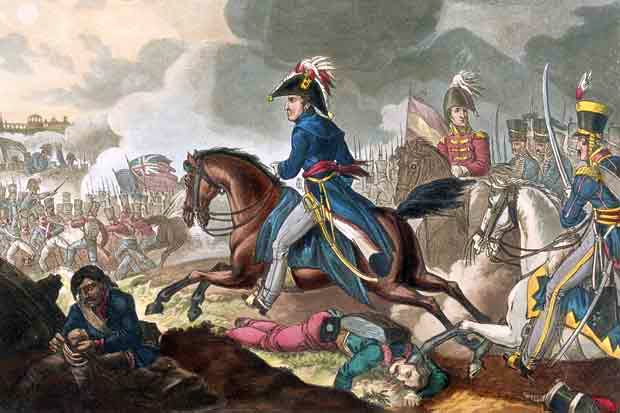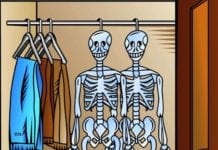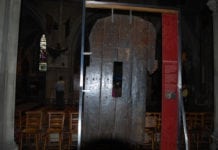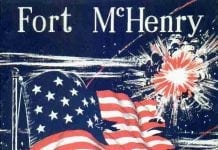The earliest reference to ‘colours’ as a means of identification can be traced back to the English navy, who adopted the term in 1706 to describe their flags of identity. Since then, we have regularly used expressions containing the term, such as to Nail One’s Colours to the Mast.
a
We will often hear this said of a person who is resolute in his or her principles or view of events and prepared to make them public knowledge. We might even take it as a declaration of allegiance. Since 1706, battleships around the world have flown their national ensign proudly from both the mainmast and at other points on the vessel.
a
In times of battle, a flag might be lowered as a sign of surrender, as any ship taking a pounding could lower the main flag and capitulate. But it might not be a captain or senior officer taking that decision.
a
Any frightened sailor, amid the chaos of battle, could loosen the rope and take his chances as a prisoner of the enemy. Let’s face it: an able seaman would simply be put back to work aboard the conquering ship – a considerably better option to a watery end.a
a
To prevent this, dedicated and brave sea captains might order the flag rope to be literally ‘nailed’ into the mast, preventing any sign of surrender being made during battle. Since the early 18th century, the term has been used to describe a determined or principled person.
Sir Robert Peel used the phrase in the Croker Papers (1844) when he ridiculed a political opponent: ‘I have never heard him (Ashburton) make a speech during the course of which he did not nail, unnail, renail and unnail his colours again.’
a
Arnold Bennett when writing The Matador of the Five Towns (1912) included the line: ‘She could not conceive in what ignominy the dreadful affairs would end, but she was the kind of woman that nails her colours to the mast.’
a
When you find a person Three Sheets to the Wind they are roaring drunk and capable of very little. There are two suggested origins for this phrase, the first is that a windmill with only three sails (sheets) would rotate badly and wobble like a drunk.
But the second is far more likely, especially as, like so many of our favourite phrases, it has a nautical origin.a
The sails of a tall ship were controlled by rope (the rigging) and these ropes were called ‘sheets’. Two sheets controlled each sail and the story is that if one of the sheets wasn’t properly handled, then the other three (of the two sails) would be ‘to the wind’ and the boat would veer from side to side without being fully under control, much like a drunk trying to navigate his, or her, way home.
More interesting history with Albert Jack
A Diehard Supporter is resilient, fierce and will show complete loyalty in any circumstances. The original group of ‘diehards’ were the British 57th Foot Regiment, in the Duke of Wellington’s army, who fought bravely against the French during the Battle of Albuhera.
On the 16 May 1811, their commanding officer, Colonel Inglis, had his horse shot dead from beneath him and he himself lay badly injured on the ridge that was a key position for Wellington’s army.
At that time, the English were outnumbered by French troops and under heavy attack. But even so, Inglis refused all attempts to carry him to the rear and instead lay shouting encouragement to his men: ‘Die Hard the 57th, Die Hard.’
I am not sure if that sort of motivational speaking would encourage me much, but it worked at the time and the battle was eventually won – albeit with heavy casualties as only one of the twenty-four officers survived, along with one-hundred and sixty-eight out of the original five-hundred and eighty-four infantrymen.
From that day onwards, the regiment, which became the ‘West Middlesex Regiment’, were known throughout Wellington’s army as the ‘diehards’. It is not recorded what the French army called the diehards after the event, but we can have fun guessing.
 To be Dressed Up to the Nines means to be wearing our finest suit or evening gown. Some suggestions for the origin of this phrase lead us to tailoring and the belief that it takes nine yards of material to make the perfect three-piece suit.
To be Dressed Up to the Nines means to be wearing our finest suit or evening gown. Some suggestions for the origin of this phrase lead us to tailoring and the belief that it takes nine yards of material to make the perfect three-piece suit.
But that seemed a little bit weak to me, so I looked further and found most sources insist it began as ‘dressed up to the eyes’, which has been corrupted over the years.
Still not convinced, I decided to work backwards and look for all the possible uses of the word ‘nine’, discovering a little gem in the process.
In the precious metals industry, the finest gold and silver are never classified as 100 per cent pure, but as 99.99 per cent; hence the finest metals are known as ‘the nines’ throughout the trade.
It is my belief that ‘being dressed up in your nines’ means to be wearing your finest jewellery. Further evidence to support this theory lies in the archive of the Royal Gloucester, Berkshire and Wiltshire Regimental Museum in Salisbury. Queen Victoria’s favourite regiment was the Wiltshire (Duke of Edinburgh’s) 99th Foot.
Stationed at Aldershot, they were always chosen to guard the Royal Pavilion in Brighton, consequently becoming known as ‘the Queen’s Pets’. The officers’ dress code included an unusual amount of gold lace on their uniforms; hence they were regarded as being ‘dressed up in their nines’ for royal duty.
To Face The Music has two possible origins. The first is that nervous (often terrified) actors and actresses, on an opening night, would have to go out on stage at the start of their performance and quite literally ‘face the music’ (as the orchestra pit sat directly in front of the stage with the musician facing the actors).
In this case ‘facing the music’ meant the actor actually went out and performed, rather than losing their nerve and bottling it.
The second and less likely origin, suggests that a dishonourable military discharge would always result in the disgraced serviceman being marched off barracks to the sound of drummers playing (drummed out), in which case he too had ‘faced the music’.
The phrase Pull Your Finger Out is these days associated with encouraging someone to get a move on, or hurry up and complete a task more quickly than they are presently doing.
Loaded cannons would have gunpowder poured into a small ignition hole, which was then held in place with a wooden plug.
But in times of battle, when speed was of the essence, the powder would be pushed in and then held in place by a gun crew-member using his finger.
Impatient artillerymen, anxious to fire their cannons at the advancing enemy, would shout at his crewmate to ‘pull his finger out’ so that the gun could be fired. It has not been recorded how many digits were lost on the battlefields. – Albert Jack
Albert Jack AUDIOBOOKS available for download here

Shaggy Dogs & Black Sheep






































